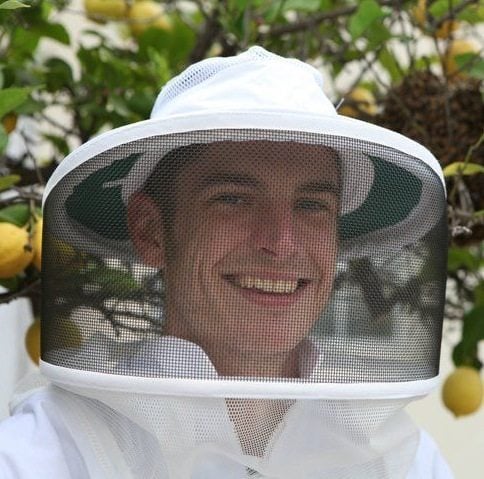Sharing is caring!
By Rob McFarland, Buzzworthy Blogs
Honeybees are in real trouble. The good news is that getting your backyard ready for beekeeping, you can do something about it right in our own home! Honeybees are in real trouble as a result of a number of factors including habitat loss, pesticides, fungicides, lack of genetic diversity, stress, and poor diets. All of these factors in combination make bees especially vulnerable to their traditional foes: mites, parasites, viruses, and all manner of disease.
The good news, however, is that we can do something about it right in our own backyards (or on our rooftops). From Los Angeles to Manhattan and Portland to Pittsburgh, urban beekeepers have taken up beekeeping as both a means of conserving bees and a way to localize food supplies. Our urban environments provide excellent habitats for bees, in contrast to the agricultural areas traditionally associated with beekeeping.
From our gardens and parks to our green spaces and wild areas, cities provide bees with forage that is rich in biodiversity and available throughout the year. Though we have a long way to go before our cities are free of pesticides, compared to a life pollinating commercial agriculture, city bees are as pesticide-free as possible. And since urban bees are not hauled around the country to pollinate crops like almonds, apples, pears, cherries, oranges, and 85 other food crops, they have a much less stressful life – which allows them to better cope with Varroa mites, viruses, and bacterial infections.
By being good stewards of our bees, creating pollinator habitat gardens, and working to rid our cities of pesticides, we can go a long way toward saving honeybees from going the way of the dodo. At HoneyLove, we realize that not everyone can (or wants to) become a beekeeper, but we believe that everyone can contribute to the future of the honeybee. Join us at HoneyLove.org to discover how you can help.
 Rob McFarland, Co-Founder & President of HoneyLove, is an avid beekeeper, gardener, and creative director. He leads the core operational functions of HoneyLove’s mission to conserve bees — including all aspects of HoneyLove’s hands-on beekeeping activities with a safety-first, common sense, sustainable approach.
Rob McFarland, Co-Founder & President of HoneyLove, is an avid beekeeper, gardener, and creative director. He leads the core operational functions of HoneyLove’s mission to conserve bees — including all aspects of HoneyLove’s hands-on beekeeping activities with a safety-first, common sense, sustainable approach.
Submit your story or essay to Buzzworthy Blogs.
- Tags: urban beekeeping


1 thought on “Is Your Backyard Ready For Beekeeping?”
Earn BeeBucks by rating this article or product and writing a review here. Then share your review for additional BeeBucks!
Comments are closed.